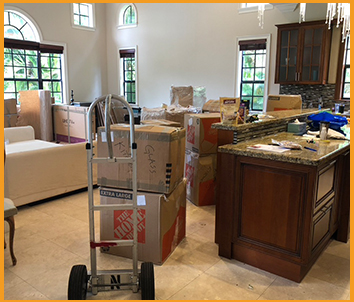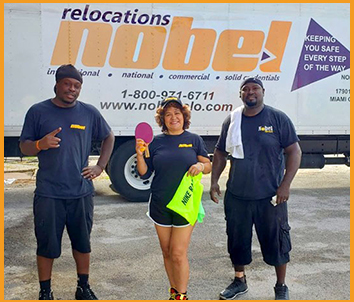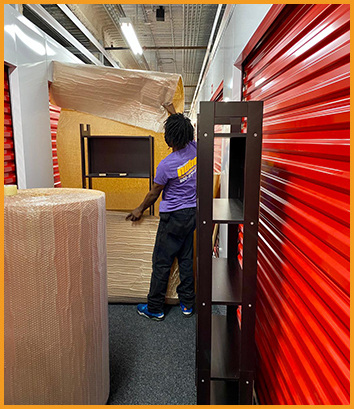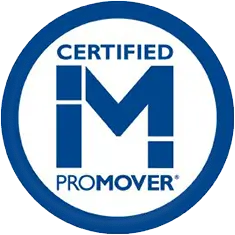Moving to Japan from US
 Moving to Japan from the USA is not as complicated as it may seem. Indeed, it’s a completely different culture, you may want to learn how to speak Japanese, maybe get a job, or perhaps start a business.
Moving to Japan from the USA is not as complicated as it may seem. Indeed, it’s a completely different culture, you may want to learn how to speak Japanese, maybe get a job, or perhaps start a business.
One thing is for sure, Japan is one of the most modern, technologically advanced, and attractive options for westerners. It’s a different culture with numerous attractions.
Located in the Pacific Ocean, the country is one of the most precious gems in Asia. It has an incredible economy and rapid development. There’s plenty of history, not to mention cherry blossoms pretty much everywhere. Overall, it’s an experience you won’t forget.
Becoming a Japanese citizen or resident also brings a wide variety of advantages.
Life standards are high, the environment is clean, and crime rates are low. Get health insurance, and you’ll benefit from one of the most solid systems in the world.
The country of the rising sun is often ranked well in numerous fields and assessed as having one of the largest economies out there. Throw in the perfect education system and the scenery, and you have a perfect location.
Although lots of people move to Japan from nearby countries, the truth is that the expat community includes people from all over the world.
In 2018, more than 50,000 Americans lived in Japan. In 2017, over 10,000 Canadians called Japan home.
Whether you want to know more about the types of visas, the differences between a tourist visa, a student visa, and a working visa, the rules of the Japanese government, or whether or not you need to speak Japanese, this guide will give you all the information you need.
Visa and Other Requirements for your Move to Japan
There are certain requirements to move to Japan, whether you want to do it for a particular time frame or permanently. Obviously, being in Japan permanently has tighter requirements.
There are more visas you can go for, such as a work visa or perhaps a general visa. If you’re married, you’ll also have to consider a spouse visa for foreign nationals.
To most people, adjusting to Japanese culture is fairly simple, but if you’re coming from the USA and you’re not familiar with it, you may need a while. Therefore, it’s recommended to start with a temporary visa, and see how it works before aiming to become a Japanese national.
Becoming familiar with the working holiday visa
Japan is part of an immigration program established in 2023, along with 26 countries. It’s a mix between different work visas and an official visa for work.
The concept is fairly simple to understand. People in these countries can qualify for this type, work and pay for their expenses for a year. The visa covers people aged between 18 and 30, so it’s a great first step to move to Japan.
Those who get the visa will benefit from the local healthcare system and other facilities. The bad news is the program has been established with countries like France, Australia, Canada, or New Zealand, among others. The USA has not been included in the program.
Such visas are limited because it depends on the home country. For instance, Japan can take up to 6,500 Canadians per year, but there are no limits for Portuguese interested in moving to Japan.
Americans can take advantage of this working holiday visa if they have dual nationality and the other country is part of the program.
How about a visa for work?
When moving to Japan, most people go for classic work visas. Local governments offer such visas to people from all over the world. Again, there is one major requirement here, finding a job with a local company first.
Unlike other nations, it’s difficult to move there and support yourself until you find a job. Instead, you’ll need to find the job first. The employer must then sponsor the application.
The local government offers such a visa for three months to five years. Once you get it, you can also go for health insurance. Sometimes, employers pay for health insurance.
To apply for this visa, you can get to the nearest Japanese embassy, get a visa application form, and bring documents to prove your employment, such as employment letters or contracts. Your passport must be valid as well, or moving to Japan will be impossible.
Understanding the highly skilled professional visa
When moving to Japan, a highly skilled professional visa is suitable to those with advanced education or degrees, as well as rare and useful skills. There are similar rules to get a highly skilled professional visa.
Find a job, get a contract or invitation, and get to the nearest Japanese embassy or Japanese consulate to complete a visa application. Get the job, get the health insurance, and go on from there.
This is a proper visa that can get you five years on average. In certain situations, you could bring parents or maybe a nanny. Your spouse will also be allowed to work in Japan on a full time basis. Include everything on the application prior to moving to Japan.
Assessing the startup visa
The startup visa is a good first step toward permanent residency or even citizenship. It’s made for those who want to start a business in Japan. You’ll need to decide on a municipality and work with it. Each municipality may have certain rules and requirements.
Normally, a business plan and proof of funds will do. The visa usually goes for five years.
Considering the specified and general visas
When moving to Japan, the specified visa is suitable for children and spouses of Japanese people, as well as people with Japanese ancestry or spouses of those with permanent residency.
Such a visa goes for anywhere between six months and five years. It requires proof of a relationship.
The general visa is a long term one, suitable to people with sponsors, as well as those who have various duties, not work. This visa can go for three months to five years.
Students can also benefit from general visas. If you qualify, you’ll need to complete a student visa application in a Japanese consulate or embassy.
Steps to get a visa
Moving to Japan from the USA begins with an application. First, you’ll require a Certificate of Eligibility. Get it from a regional immigration office from Japan. When you get a sponsor, they’ll usually get it for you.
To get the Certificate of Eligibility, the sponsor must go there in person.
Second, visit a Japanese consulate or Japanese embassy in the USA to complete the application. Fees are low and depend on how many entries you need. Additional fees may apply to different types of visas.
Permanent residency is the first step to Japanese citizenship. To get it, you’ll need to be in Japan for 10 years in a row, work for at least five of them and have no criminal records. Even a traffic issue can prevent the application for Japanese citizenship.
Japanese immigration services must see proof of financial stability. You’ll also need your taxes paid and more importantly, a different permanent resident or Japanese national sponsor you.
Lifestyle Adjustment and Culture in Japan
Japan has a rich history, a unique culture, and many big cities that look appealing to foreigners. However, compared to the USA, the lifestyle is different. You’ll need to get used to the cost of living in Japan and maybe even learn Japanese overtime.
Weather in Japan
The climate varies from one part of Japan to another. The northern side of Japan has cold winters and warm summers. Snowfall is quite common in mountainous areas. In the east, summers are humid and hot. Winters can still bring in some snow. As for the west, summers are even hotter, and winters are mild.
Islands in the south of Japan have even milder winters and very hot summers. Compared to other countries, Japan reports the highest number of earthquakes per year.
Healthcare system in Japan
The healthcare system in the eastern island nation is among the best in the world. More than 98% of the Japanese get help through the insurance system. The rest is targeted by a program for people with a low income. Most hospitals in Japan are private and offer excellent care.
On average, the Japanese pay about 30% of the total cost themselves. Medical costs for insurance policies and treatments are lower than in other countries, even lower than in the USA. Foreigners can also get insurance through their employers or by themselves.
Education system in Japan
There are lots of primary schools, kindergartens, and universities in Japan, making the country one of the best educated nations in the world. Kids aged three to five get free education in Japan. Those from low income families can get free education from an earlier age, meaning the education system is very strong.
At six, all children are legally required to start primary school in Japan. Compulsory school goes through six years, followed by three more years in lower secondary school. Upper secondary school is optional, but also free in Japan.
Big cities also have private intermediate schools, elementary schools, high schools, or universities. In some of these schools, professors also teach English. Many of them are aimed at foreigners only.
College students have numerous job opportunities once they complete their education.
Believe it or not, there are more than 700 post-secondary schools in Japan. Some of the most reputable ones include:
- Kyoto University
- Tohoku University
- Kyushu University
- University of Tokyo
- Osaka University
- Nagoya University
Quality of life in Japan
Living costs are quite high in Japan, but this also means quality of life follows the same ascending trend, whether you’re on a tourist visa or you work there. Social support systems stand out. Big cities, as well as small towns, are considered safe in Japan.
The employment rate is also high, so most people have a high quality of life.
Life in Japan can also be a bit stressful if you’re not used to intensive work. The country has long working hours, but pretty much every Japanese citizen is used to it. Besides, there’s constant pressure for perfection when you’re on a work visa.
Despite the high quality of life and affordable living costs, Japan is also considered a relatively unhappy country. According to the World Happiness Index from 2022, Japan was on the 54th position. Meanwhile, the USA was on the 16th position.
Safety standards in Japan
Enter Japan with your tourist or valid work visa, and you’ll be impressed by its cleanliness and professionalism. Anyone from a foreign country will see a major improvement once they start to live in Japan, pushing more and more people to go for a residence card or aim to become a permanent resident.
The crime rate is another reason, as it’s incredibly low. Despite the industrialization age, crime rates in Japan stayed low, especially when compared to the USA or Canada.
The culture is based on self-control and harmony, while the strong economy helps keeping the rate of violent crimes at a very low level.
A few words on the Japanese culture
People bow when they meet someone, just a matter of respect. At the same time, most people call each other by their last name, but they also add a suffix:
- -san for men
- -sama for women
Kids are normally called by first names.
At official meals, leave the glass on the table until someone decides to make a speech and raise it. In many places, you’ll get a wet cloth to clean your hands before meals. Don’t use it as a napkin. Slurping is a sign that you like the food, and it’s not considered rude.
No matter how much you appreciate a service, tipping is often considered rude. Keep a low profile overall, and avoid being loud, blowing your nose, or eating while you walk.
Take your shoes off before entering a home, and always wear a mask if you cough or sneeze, even if it’s just an allergy. Even if you’re only surrounded by family members, it’s still a nice gesture, common in Japan before the pandemic.
Many Japanese citizens are English speakers, so you’ll find your way around without too much hassle. It’s still a good idea to find foreign language teachers and learn the local language. Although people do speak English, it helps with foreign customers or local jobs.
Infrastructure in Japan
Japan employs technology in terms of infrastructure. You’ll find many highways and wide roads in Japan, even between small towns. They’re kept in excellent condition too.
Public transportation is not a problem either. All cities have reliable bus systems. You can also drive, but traffic can be difficult in big cities.
Japan also has plenty of airports, so air transportation is not an issue.
Fun and entertainment in Japan
Entering Japan is like entering a completely different culture, but fun and entertainment go further than that.
All cities have many shopping centers, bars, and restaurants, as well as the world renowned karaoke bars. Some of the most popular attractions in Japan include:
- Universal Studios Japan, Osaka
- Meiji Jingu Shrine, Shibuya
- Sankeien Gardens, Yokohama
- Fushimi Inari-taisha Shrine, Kyoto
- Mount Moiwa, Sapporo
Every city has a series of local attractions too.
Affordable moving costs from US to Japan
 Moving to Japan may seem challenging, going to a completely different culture and experiencing the Japanese immigration system. However, once you have all the information you require, the move is normally smooth and simple.
Moving to Japan may seem challenging, going to a completely different culture and experiencing the Japanese immigration system. However, once you have all the information you require, the move is normally smooth and simple.
The process is even easier if you leave everything behind and decide to start a new life in Japan. However, at Nobel Relocation Moving & Storage, we believe it’s more cost efficient to bring your belongings as well, whether it comes to valuables, high quality furniture or antiques.
There isn’t much involved for you in the process, and the move in costs may actually be lower if you choose to relocate your stuff rather than having to buy everything once you get there.
While it may sound like a hassle, that’s actually a misconception. We offer a comprehensive moving service that covers every aspect of the move.
Most people imagine they’d have to choose different services for different jobs, and that’s what makes the job difficult, as they can’t synchronize everything.
Here at Nobel Relocation Moving & Storage, we’re a family owned business working with the customers’ needs in mind. We’ll come over or have a video call with you for a free quote, and we’ll offer a few extras in the process.
Our extras include packing services, as well as storage in our secure facilities and unpacking solutions at your new destination.
Relocating Personal Belongings to Japan
 At Nobel Relocation Moving & Storage, we offer a full moving service. We specialized in local transportation, as well as nationwide and even international moves.
At Nobel Relocation Moving & Storage, we offer a full moving service. We specialized in local transportation, as well as nationwide and even international moves.
Move in costs to Japan from the USA are generally lower than if you left everything behind and reinvested in everything in Japan, from furniture to electronics. Besides, some things are irreplaceable.
There are many circumstances that could change the service we provide, but we’re flexible and ready for any kind of situation. Normally, you can bring your personal belongings to Japan by air freight or sea. Legally, the procedure is known as customs clearance for traveler’s baggage.
The items you bring in must be declared. There’s more documentation required, such as an invoice, air waybill or bill of lading, a certificate of origin, and others. We’ve helped customers relocate to Japan, so it’s just a matter of paperwork for us.
Your belongings can be imported to Japan free of customs duty if you move to the country for a long term, and you do the move within six months of your entry.
Certain items are not allowed in Japan, even if some of them are legal in the USA. For example, firearms are prohibited, not to mention counterfeit or imitation money, books, or other similar items that could hurt public morals.
If it sounds complicated, our experts are here to give you a more detailed insight into everything involved with your move to Japan. Again, we’ve helped people relocate to Japan, and we know exactly what it takes for a smooth and easy move.
We can pack and transport everything in your household. Our aim is to provide a stress-free experience to our customers. All you need to do is set up your new home, find a location, and make sure everything is ready for our arrival.
We take the stress off your move and let you focus on other things, such as finding a job or perhaps signing up with a local dentist.
Don’t hesitate to get in touch today, and we’ll give you a free quote on the spot.




















